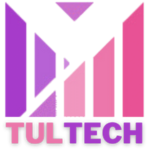Peer Review & Publication Policy
This journal uses double-blind peer review, which means that the two reviewers of the manuscript won’t get to know the identity of the author(s), and the author(s) won’t get to know the identity of the reviewer. The idea is that everyone should get a similar and unbiased review.
The purpose of the peer review practice is to ensure that good research, case study, report, survey, or science is published. It is an objective process at the heart of good scholarly publishing. Our reviewers therefore play a vital role in maintaining the high standards of the journal, and all manuscripts are peer reviewed following the procedure outlined below.
Initial manuscript evaluation
The editor first evaluates all manuscripts. It is rare, but it is entirely feasible for an exceptional manuscript to be accepted at this stage. Those rejected at this stage are insufficiently original, have serious scientific flaws, have poor grammar or English language, or are outside the aims and scope of the journal. Those that meet the minimum criteria are passed on to at least two experts for review. Authors of manuscripts rejected at this stage will be informed within one week of receipt.
Type of peer review
JTSE journal employs double blind review, where the reviewer remains anonymous throughout the process; double blind reviewing, where both the reviewer and author remain anonymous throughout the process; and open reviewing, where both the reviewer and author are known to one another.
How the reviewer is selected
Since 2024, authors submitting manuscripts to TULTECH journals are required to suggest two reviewers who meet the following criteria:
• Hold a PhD degree.
• Have expertise in the field relevant to the manuscript's subject.
• Have affiliations different from the authors of the manuscript.
These criteria ensure the quality and impartiality of the peer review process, contributing to the integrity and credibility of the published research.
Reviewer reports
Reviewers are asked to evaluate whether the manuscript:
-Is original
-Is methodologically sound
-Follows appropriate ethical guidelines
-Has results which are clearly presented and support the conclusions
-Correctly references previous relevant work
Reviewers are not expected to correct or copyedit manuscripts. Language correction is not part of the peer review process.
How long does the review process take?
Typically, the manuscript will be reviewed within 1–6 weeks. Should the reviewers' reports contradict one another or a report be unnecessarily delayed, further expert opinion will be sought. All our reviewers sign a conflict of interest statement. Revised manuscripts are usually returned to the initial referees within 1–6 weeks. Reviewers may request more than one revision of a manuscript.
Final report
A final decision to accept or reject the manuscript will be sent to the author along with any recommendations made by the reviewers, which may include verbatim comments by the reviewers.
Editor’s decision is final
Reviewers advise the editor, who is responsible for the final decision to accept or reject the article.
Becoming a Reviewer for JTSE
If you are not currently a reviewer for JTSE but would like to be added to the list of reviewers for this title, please contact the editorial office at jtse.tultech@gmail.com or request to be a reviewer via Publon. The benefits of reviewing include the opportunity to see and evaluate the latest work in your research area at an early stage and to be acknowledged in an annual statement in the journal.
Plagiarism
Plagiarism is the use of others' published and unpublished ideas or words (or other intellectual property) without attribution or permission and presenting them as new and original rather than derived from an existing source. Journal of Transactions in Systems Engineering (JTSE) has effectively utilized a plagiarism checker for the detection of the quality of all submitted articles in the review process. Once a paper is reviewed before any decision is made, the editorial board meets monthly. We shall provide a full report from the board of reviewers and iThenticate to assist board members in judging and making correct decisions. At JTSE, we strongly discourage and are against the Plagiarism Act. Self-plagiarism refers to the practice of an author using portions of their previous writings on the same topic in another of their publications without specifically citing them formally in quotes.





